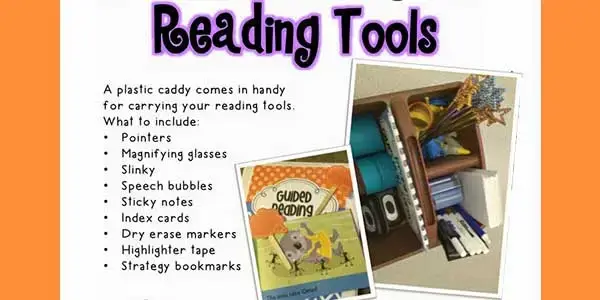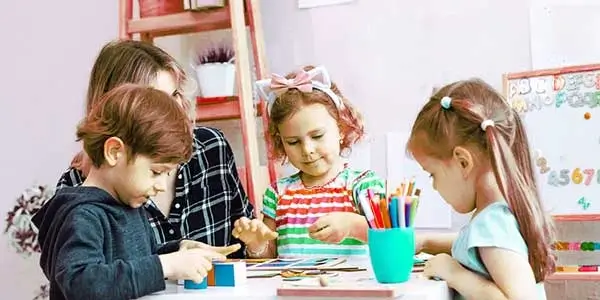“Discovering the best reading tools for kindergarten is a crucial step in nurturing a child’s early literacy skills. In the formative years of kindergarten, children embark on their reading journey, building the foundation for a lifetime of learning. These tools, whether interactive apps, engaging e-books, or hands-on activities, play a pivotal role in making the learning process both enjoyable and effective. Join us as we explore a curated selection of the finest reading resources designed to inspire young minds and cultivate a love for reading in kindergarten learners.”
So here is the Best Reading Tools for Kindergarten
- Phonics Programs:
- Starfall: Offers interactive lessons and activities that focus on phonics and early reading skills. It’s a popular choice for kindergarten and early elementary students.
- Interactive e-books:
- Epic!: Provides a vast library of digital books for kids, including many suitable for kindergarten. It offers a wide range of fiction and non-fiction titles.
- Educational Apps:
- ABCmouse: Offers a comprehensive early learning curriculum that includes reading and phonics activities. It’s engaging and suitable for kindergarten.
- Reading Workbooks:
- Scholastic Learn at Home: Scholastic offers printable reading worksheets and workbooks for various grade levels, including kindergarten.
- Sight Word Tools:
- Sight Words Flashcards: Physical or digital flashcards featuring common sight words can help kindergarten students learn essential words by sight.
- Online Libraries:
- Library Apps: Many public libraries offer online platforms and apps that allow students to borrow digital books, which can be a valuable resource for reading practice.
- Phonics Games:
- Educational Games: Interactive phonics games and apps like “Hooked on Phonics” can make learning phonics fun for kindergarteners.
- Read-Aloud Books:
- Read-Aloud Books: Classic picture books and read-aloud can help build vocabulary and comprehension skills. Look for titles by authors like Dr. Seuss, Eric Carle, and Mo Willems.
- Reading Software:
- Reading Eggs: Reading Eggs is an online program designed to improve reading skills in a fun and interactive way. It’s suitable for early readers.
- Parent-Teacher Resources:
- Teachers Pay Teachers: This platform offers a wide range of educational resources, including printable reading materials created by teachers and educators.
- Phonics Flashcards:
- Physical Phonics Flashcards: Traditional flashcards with letters and phonics sounds can be a hands-on way to reinforce reading skills.
- Word Building Games:
- Bananagrams: This word-building game can be a fun and educational way to strengthen kindergarten students’ vocabulary and spelling skills.

When selecting reading tools for kindergarten, consider your child’s individual learning style and needs. It’s often beneficial to incorporate a mix of tools, including digital resources, physical books, and hands-on activities, to create a well-rounded reading experience. Additionally, spending time reading together with your child and providing positive reinforcement can greatly support their reading development.
How do I teach my child to read in kindergarten?
Begin by reading to your child regularly and creating a reading-friendly environment at home. Introduce phonics and sight words gradually, practice letter recognition, and encourage them to sound out words. Interactive reading apps, games, and books can also aid in their development.
How can I help my struggling kindergarten reader?
Identify the specific challenges your child is facing, whether it’s with phonics, sight words, comprehension, or motivation. Tailor your support to address these areas, provide extra practice, consider a tutor if needed, and maintain a positive and patient attitude.
What tools do kindergarten teachers use?
Kindergarten teachers use a variety of tools, including textbooks, interactive whiteboards, educational apps, reading materials, manipulatives, and hands-on activities to engage students and teach reading skills effectively.
Should kindergarteners learn to read?
Yes, kindergarten is a crucial time for early literacy development. While not all kindergarteners will become fluent readers during this year, they should start building foundational reading skills such as letter recognition, phonics, and vocabulary.
What is the most effective teaching method in kindergarten?
Effective teaching methods in kindergarten often involve a balanced approach that includes phonics instruction, interactive reading, sight words, and exposure to a variety of texts. Tailoring instruction to individual student requires is key.
What makes the best kindergarten teacher?
The best kindergarten teachers are patient, enthusiastic, creative, and have a deep understanding of child development and early education. They create a supportive and engaging classroom environment and adapt their teaching methods to suit each child’s needs.
Should kindergarteners use worksheets?
Worksheets can be a useful supplement to hands-on and interactive learning experiences. However, they should not be the sole focus of instruction, as young children benefit from a range of learning activities that include play, reading, and exploration.
What percentage of kindergarteners can read?
The percentage of kindergarteners who can read fluently varies widely. While some may be early readers, many are still in the process of developing foundational reading skills at this stage.
How many sight words should a kindergartener know?
Kindergarten students typically start with a small set of sight words (e.g., 20-50 words) and gradually expand their sight word vocabulary throughout the year. The exact number can vary by school and curriculum.
What age do most kids learn to read?
Most children begin to learn to read between the ages of 5 and 7. However, the pace of reading development can vary greatly among individuals.
What are the tools that encourage reading?
Tools that encourage reading include books, e-books, educational apps, phonics games, interactive reading programs, flashcards, and a supportive reading environment at home. Engaging with a variety of texts and activities can foster a love for reading.

Frequently Asked Questions:
Q1: Are there any free reading tools for kindergarten?
A1: Yes, there are free reading tools such as Starfall, Khan Academy Kids, and free printable worksheets from websites like Education.com and Scholastic Learn at Home.
Q2: How can I make reading fun for my kindergartener?
You can make reading fun by incorporating interactive e-books, educational games, and engaging storybooks with colourful illustrations. Reading together and acting out stories can also add an element of fun.
Q3: Are there reading tools that can help with comprehension in kindergarten?
Yes, tools like interactive storybooks with comprehension questions, educational apps with reading comprehension exercises, and read-aloud discussions can aid in developing comprehension skills.
Q5: Can I use educational games as reading tools for kindergarteners?
Absolutely! Educational games that focus on phonics, sight words, and vocabulary can be valuable reading tools for kindergarteners. Games like “ABCmouse” and interactive phonics games are great options.
Q6: How do I choose the right reading tool for my kindergartener’s skill level?
Consider your child’s current reading level and needs. Start with age-appropriate tools and gradually progress to more advanced ones as your child’s skills develop.
Q7: Are there reading tools specifically designed for children with learning disabilities in kindergarten?
Yes, some reading tools and apps are designed to cater to children with learning disabilities. Look for resources that offer customizable learning experiences and accommodate individual learning needs.
Q8: How can I track my kindergartener’s progress with reading tools?
Many reading tools and apps offer progress tracking features that allow you to monitor your child’s performance, including completed lessons, scores, and areas that may need additional attention.
Q9: Can reading tools be used for remote or virtual kindergarten learning?
Yes, reading tools can be valuable for remote or virtual kindergarten learning. Many educational apps and online resources are designed to support remote learning and can be accessed from home.
Q10: Are there reading tools that promote a love for books and reading in kindergarten?
Yes, tools like Epic!, a digital library with a vast collection of children’s books, can introduce kindergarteners to a wide variety of books and stories, fostering a love for reading. Additionally, visiting libraries and bookshops can also encourage a love for books.
